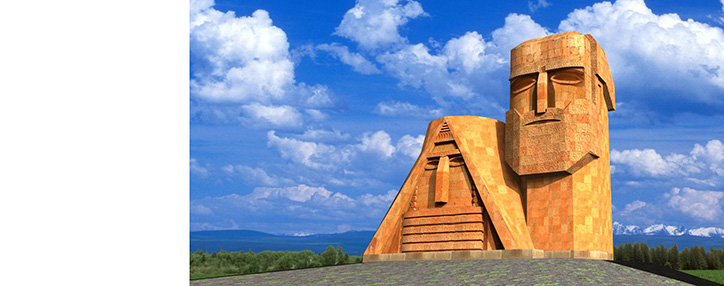OSCE Minsk Group co-chairs to resume visits to region – Russian foreign minister

YEREVAN, September 28. /ARKA/. The agreements ending military activities in the Nagorno-Karabakh region, which were reached by the leaders of Russia, Armenia and Azerbaijan last year, helped establish stability in the conflict zone, Russian Foreign Minister Sergey Lavrov said at a press conference on Tuesday, TASS reported.
"The main thing that has been achieved in nearly a year since November 9, 2020, is that stability was established and has been maintained; the presence of Russian peacekeeping forces helps prevent violent acts, which is what we see now. The minor incidents that occurred at first were promptly resolved. I would like to reiterate that the situation is stable there though there are a lot of issues," Lavrov noted.
According to him, a mine clearance operation has yet to be completed in Nagorno-Karabakh, as well as an operation to return detained persons.
"The main goal currently is to build a calm, peaceful and stable life, encourage the Armenian and Azerbaijani communities to reach the mutual trust that the region lacked for decades and make sure that issues related to the return of refugees and other everyday issues are resolved," the Russian top diplomat emphasized.
According to him, the OSCE Minsk Group Co-Chairs agreed in New York with Baku and Yerevan to resume working trips to the Nagorno-Karabakh region.
"Just the other day, three co-chairs from Russia, the United States and France met in New York with the foreign ministers of Azerbaijan and Armenia. As far as I understand, they agreed to resume their trips to the region to visit [Nagorno-Karabakh] and speak on the spot with representatives of Armenia, Azerbaijan, including in Stepanakert," he said.
On September 27, 2020, Azerbaijani armed forces, backed by Turkey and foreign mercenaries and terrorists, attacked Nagorno-Karabakh along the entire front line using rocket and artillery weapons, heavy armored vehicles, military aircraft and prohibited types of weapons such as cluster bombs and phosphorus weapons.
After 44 days of the war, on November 9, the leaders of Russia, Azerbaijan and Armenia signed a statement on the cessation of all hostilities. According to the document, the town of Shushi, the districts of Agdam, Kelbajar and Lachin were handed over to Azerbaijan, with the exception of a 5-kilometer corridor connecting Karabakh with Armenia.
A Russian peacekeeping contingent was deployed along the contact line in Karabakh and along the Lachin corridor. -0-



